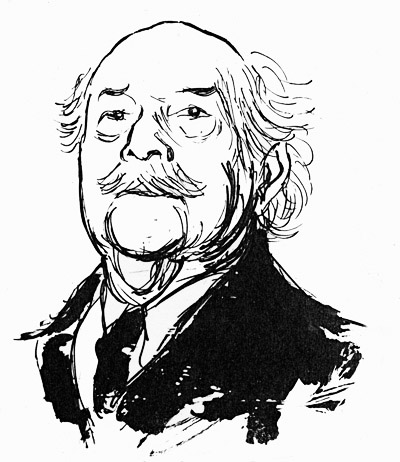Christianity versus Capitalism (Part 5)
.jpg) |
|
Illustration by Elizabeth Taylor. |
Two young fish were swimming along together when they passed an older and wiser one of their number. ‘How’s the water today, fellas?’, he cheerily greeted them. Further on, one of the younger fish looked to the other with a puzzled expression: ‘What’s water?’.
This is the final instalment of a series of articles in which I have been slowly building a case about the relationship between Christianity and capitalism. ‘Capitalism’ is a word that gets bandied about a lot, but is rarely defined, and it has strong polemical overtones that tend towards ideological polarisation either for or against it. Often it can be an unhelpful word, obscuring more than it clarifies. Why bother with it at all?
Over the course of this series, I have been arguing that capitalism can be a useful word, so long as we are clear about what we mean by it. Following a long tradition of historians, political economists and sociologists, I have been arguing that the term ‘capitalism’ captures a complex, but momentous, shift in human socio-political systems that began to unfold in Europe 500 years ago and, through Europe’s expansion, spread to encompass the globe.
To be precise, what was born in Europe at the close of the Mediaeval period was a capitalist world-system: a huge, complex, integrated and interdependent global system, over which no one has control, that is driven by the imperative of endless accumulation and does so through the relentless commodification of life. In this sense, the descriptive label of ‘capitalism’ helps us recognise the significance of where we stand in the grand scheme of human history and helps us name the powerful, but hidden, forces that shape how we are formed as human beings. Capitalism is the water we have all been swimming in.
This takes on even more significance when we begin to think theologically. A central claim of the New Testament, especially in the writings of Paul, is that Christ has exposed and triumphed over the enigmatic ‘principalities and powers’ that dominate and shape human existence. He reminds us that ‘our struggle is not against flesh and blood, but against the rulers, against the authorities, against the powers of this dark world and against the spiritual forces of evil in the heavenly realms’ (Eph 6:12). In this sense, the language of capitalism powerfully names the spirit that dominates our age. It is something like the ‘power of the air’ to which Paul refers in Ephesians (2:2): it is the matrix of beliefs, ideologies, assumptions, habits and institutions that forms the overall atmosphere we breathe without even knowing it.
It is in this sense that I argued in the previous article (May 2018) that capitalism is inimical to Christian faith. It is not just that capitalism is unchristian, but that it is specifically anti-Christian: a counter-religion with which the church can find no compromise. Therefore, if we are seeking to follow the Way of Christ, then we must reject capitalism as a way of being.
But what could that possibly mean? If the capitalist world-system is the only show in town, how do we reject it? This is the critical question to which we must now turn, for which the previous five articles have merely been groundwork. But to do so, we need to first address some lingering confusions.
Rejecting capitalism: what I do not mean
Firstly, by identifying ‘capitalism’ as an economic system whose essential spirit we must reject, I am not saying that pre-capitalist systems represented some moral golden age from which we have fallen. Mediaeval Europe, the Roman Empire or Athenian democracy all enshrined socio-political structures that are ultimately challenged by the world-inverting gospel of Christ. In saying that Christians must reject the spirit of capitalism, I am not arguing that it represents a special case, but am rather aligning with the generic attitude of the New Testament in relation to the fallen ‘powers’ of ‘this present age’. Capitalism, along with feudalism and communism (and most other ‘isms’), is just one more way by which the great lord it over the small. The Way of Christ provides a challenge to them all.
Secondly, we should not confuse capitalism, as many have done, with commerce, markets and basic economic liberties. The claim that only capitalism allows these forms of economic life to exist is one of the great fallacies through which it has won ongoing support. Clearly, commerce, markets and profit are central to the current capitalist order, but they have all also existed for thousands of years before a capitalist world-system came into being and have flourished in many other sorts of social systems. To be clear, in saying that capitalism is inimical to the gospel, I am not saying that commerce is inimical to the gospel. Human civilisation is dependent on commerce, and, to this day, it is possible to undertake commerce within the current world-system without conforming to a capitalist logic. (The story of Kokonut Pacific in this edition is an excellent example of a non-capitalist approach to commerce.)
 |
|
The story of Kokonut Pacific (this edition) and Green Collect (May 2018) are fine examples of non-capitalist commerce. |
Similarly, in saying that we exist in a capitalist world-system, we should not imagine that everything is determined by it or that it accounts for all behaviour. On the contrary, the only reason things hold together at all is that there yet remain many areas of life not determined by a capitalist logic. And, as in all periods of history, there are always counter-movements to the dominant system, offering resistance and alternative options, however small or marginal. Capitalism does not name the entirety of our existence – far from it – but rather names a force that affects us all in more ways than we know.
Finally, the imperative of rejecting capitalism does not stem from a theological concern to be ‘pure’ from the taint of the world. Such a thing does not exist within any social system. The call of Christ is to live within the world as salt, light and leaven, not to be cut off as a pure and morally self-congratulating sect. The key question centres on worth: where do we find worth in life? To what things is it worthwhile to give our lives? Where we give worth is, literally, what we worship.
Replace or reform?
What might the call to follow Christ involve in relation to capitalism? Once you have taken the step to recognising that there is something profoundly problematic about capitalism, it is not surprising the most common assumption is that the Christian calling must therefore be to either reform capitalism or to replace it with a better system.
 |
|
|
R.H. Tawney (1880-1962) |
RH Tawney, the great English economic and Christian thinker from the early 20th century, dedicated his life to replacing the capitalist order with a more human system – he called it ‘socialism’, but he meant something quite different to what most people assume that word means today. Others have taken the more pragmatic decision to try to make the best of a bad lot and, accepting that all social systems are imperfect, have given their efforts to trying to ameliorate the capitalist system as best they could.
Each of these represent legitimate ways of trying to express God’s love and care for the world. However, neither can be considered the primary calling of Christians in the face of global capitalism. Moreover, each of them presents some particular difficulties for us in the current historical moment. Firstly, and most obviously, trying to concretely envisage an alternative economic order or to reform the failings of the present order requires a high level of specialist knowledge: either people who are trained in economics, political economy or some associated disciplines. Ideally, if this is really to form part of their Christian witness in the world, it also requires them to have a highly developed theological framework in which to fit their specialist knowledge. All of this is great to aspire to, but realistically, will only ever be relevant for a tiny percentage of Christians. It represents a very particular calling and could never be considered a primary Christian vocation.
Secondly, we occupy a very different moment in history from people like RH Tawney. Tawney was able to successfully communicate a profoundly Christian vision of economic life that was widely influential in British society and government. Tawney’s voice was accompanied by those of influential church leaders (his best friend was the Archbishop of Canterbury!) who commanded significant moral authority in the political life of the nation. For a small window of time at the end of the Second World War, it did indeed look as if the capitalist order was being transformed into something else. Although Tawney was under no illusions that Britain in the early 20th century could any longer be meaningfully described as a ‘Christian society’, he was nevertheless still able to appeal to a broadly shared moral sense of what the common good looked like.
At the beginning of the 21st century in the Western world, there is no such broad moral agreement about what the common good looks like. Rather, our society is characterised by deep moral and philosophical fissures and, in Australia, a Christian moral vision is perhaps the least popular of all. Indeed, the church itself is so fractured that we cannot really talk meaningfully any more of ‘a Christian moral vision’ and hope that people might understand what we mean by it.
We need to face up to the fact that the tides of history have well and truly turned and the Christian church in Australia is a marginal grouping that has little moral authority and even less political influence. It would now be meaningless for the church, speaking as the church, to throw its public voice, as it did in Tawney’s day, behind concrete schemes for economic restructuring.
Of course, this does not prevent those few Christians who have the specialist knowledge from performing their roles in government, civil society or academia as best they can to work for a better system. But as I have said, this is not relevant to most of us and, moreover, even for these few there are some real problems. If these secular vocations are to be seriously thought of as expressions of Christian witness (as they should), then those undertaking them must be deeply rooted in a Christ-centred way of seeing the world – the profound transformation of mind of which Paul talked and by which we see through the prevailing wisdoms of the day (Rom 12:2). And here we have real problems as Christian faith in the West has, for a long time, taken the form of a fairly thin veneer that supplements the largely non-negotiable material culture of affluent consumer individualism. As I argued in the previous article (May 2018), we generally underestimate the extent to which capitalism works on us as a school of desire that profoundly shapes our very idea of what a ‘good life’ consists of.
The result is that politically engaged Christians with specialist knowledge, whether on the left or right, tend to slip into the most attractive intellectual framework that the world offers them and end up having little to contribute in the political arena that genuinely stems from the insights of a ‘kingdom-way-of-being’, rather than from the most current intellectual fashion.
Similarly, there is nothing preventing ordinary Australian Christians from exercising their political citizenship to join with others, as best they can, to work for a better economic system. Indeed, I would argue that, as long as we continue to hold democratic rights to participate in the political life of our nation, then we are morally obligated to do so. Once again, however, the problem is how we conceive of what a better system looks like. How do we judge what set of options to support? What are the moral and philosophical criteria by which we make such judgements?
Let me be clear: I am not saying that Christians cannot play a constructive role in exercising their political citizenship or working at the coalface of systemic reform. Of course they can. What I am saying is that, to the extent we have all been shaped within the same school of desire, the moral imagination with which we are able to conceive of a more life-giving economic order, is likely to be severely constrained. Before we can think well about Christian witness in these arenas there is some prior business to which we all need to attend: we need to get our own house in order first. We need an alternative school of desire.
Christian witness in the midst of capitalism
Since the very first edition of Manna Matters 10 years ago, I have been arguing that the primary means by which we are called to communicate God’s good news to world is through the vehicle of our lives – our whole lives. The consistent call on the people of God throughout the Old Testament and the New, is to be a people who embody a new way of being human, one in which we are being called into communion with the God of love, and through him, with all of humanity and creation. This necessarily means that the people of God, whether Israel in the Old Testament or the Body of Christ in the New, have always been called to be an alternative economic community whose day-to-day mode of living rejects the idolatries of power, money, class, race, sect or nation, but instead testifies to the character of the God who is revealed in Christ.
The call to live non-conformist economic lives is not so that God’s people can be self-righteously separate and pure; rather, it is because the dominant modes of economic being have always been destructive to the communion of love between God, people and creation. The call to let Christ transform our economic lives thus has multiple dimensions, all inextricably interwoven.
- It is to materially alter our place in the social-economic order, and thereby give us a new and fresh perspective by which we can begin to see through the lies on which it is founded. That is, we cannot begin to see clearly until we change direction and begin to live differently.
- It is so that we might experience material life as truly good and life-giving rather than destructive of ‘the life that really is life’. That is, it is part and parcel of ‘working out our salvation’.
- It is so that we might live in right relationship with our neighbours near and far, and with the earth itself. In other words, that we might be a people of justice and carers for creation.
- It is so the world might catch a glimpse, through the concrete forms of our lives, of the great God of love, and so be drawn by the visible presence of abundant life to join the community of worship. That is, our economic lives should carry evangelical meaning.
Repentance, salvation, ethics and evangelism – so often seen as separate compartments of faith – are really just words that describe different aspects of the same big picture. In essence, then, Christian witness in the midst of capitalism is no different to the call of the people of God in the presence of Babylon or the Roman Empire. It is first and foremost a call to reject the idolatries of the age and to embody in our lives the love of God for the world.
The call to a new way of being human applies to our individual economic lives, but also to the shape and form of our faith communities. The key link that joins these two things together, and the unit that forms the basis of participation in the broader economy and ecology, are our households. Therefore, the primary place for us to think through how we resist the spirit of capitalism and embody a better mode of being, is through the shape of our household economies.
What does that look like? That has been the subject of the last 10 years of Manna Matters articles, so I will only give the briefest sketch here, but I encourage readers to use the Manna Gum website to fill out this picture (www.mannagum.org.au). Here are the main challenges:
- The conscious practice of economic discipleship in relation to money; in particular, through the practices of renunciation, generosity and gratitude. (See May 2016)
- Making a positive choice to live at a lower material standard of living than the current social norm. This is a choice against the idol of ‘More’ and a choice for people and the planet. (see April 2013)
- Re-thinking the shared work and vocation of a household (both paid and unpaid) to prioritise care and nurture and serving the world, as opposed to securing affluence. (See April 2013)
- Learning how to practise responsible consumption so that spending as consumers is directed as much as possible to support modes of commerce that care for people and the earth. (August 2013)
- Beginning, in small ways initially, to rediscover ways of rebuilding shared economic relationships between households and especially within faith communities. (See Advent 2015, August 2013)
 |
 |
|
Left: The motto of The Guide to Ethical Supermarket Shopping is 'Your Dollar is Your Vote" (August 2013). Right: The cooperative work of the Western Organic Collective (August 2013). The practices of responsible consumption and economic cooperation are both ways of inhabiting our consumer culture in a non-capitalist mode. |
|
In conclusion, the foundation of Christian witness in the midst of capitalism must be to first reject its inner logic – its spirit – and for that to be real it must find expression in our material lives. What is really at stake is the question of where we find worth. Or to put it theologically, who, or what, do we really worship? Once we are clearer about this ourselves, then we will have a firmer basis from which to be active political citizens or to pursue specialist vocations in re-imagining economic structures. The question of what represents ‘the good’ in economic life will not be abstract or theoretical; it will have been experienced through enfleshed daily acts of love practised in households and communities of faith. That is, there will be tangible human experience of ‘good news’ – in all its social, economic, ecological and spiritual dimensions – that can be drawn on and pointed to. In all times and all places, the heart of Christian witness is always to show in which direction lies the Way of Life, in the midst of a world that is continually drawn to choose the wide road that leads to death.
---
So what will be the future of the capitalist world-order? Will it continue to dominate all nations unchallenged? Will it collapse amid the whirl of social, economic, ecological and geo-political storms that are gathering in the 21st century? Will enough of us reach a point of collective clarity that will allow us to choose a saner path and bring the human economy to heel within viable and healthy limits? Who can say? History can help us make some guesses about the future, but its strongest lesson is that the future is entirely unpredictable. Neither does Biblical faith offer any clear clues or guides about the trajectory of human history: the twin possibilities of human repentance and flowering, and of catastrophic civilisational collapse are both accommodated within a Biblical worldview. Whatever our place within the great drama of human history, whether in times fair or foul, the affirmation of the gospel is the same: the light shines in the darkness and the darkness has never overcome it – God is with us; and, someday, somehow, the God who is in Christ will restore all things and make all things right. Though it is a mystery to us, it is this vision of healing and restoration that we are called to live into here and now. ‘Therefore, my beloved, be steadfast, immovable, always excelling in the work of the Lord, because you know that in the Lord your labour is not in vain’ (1 Cor 15:58).
